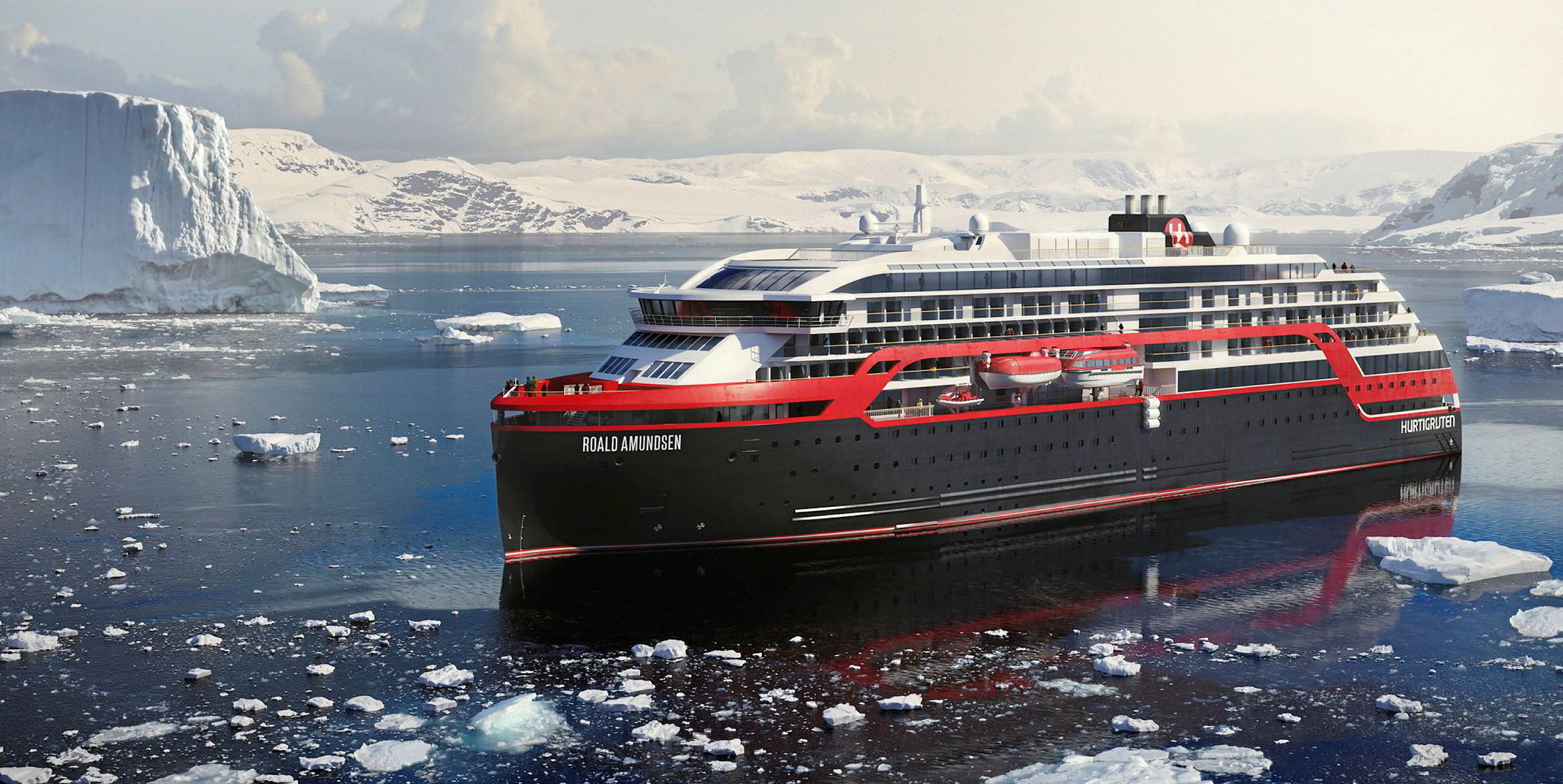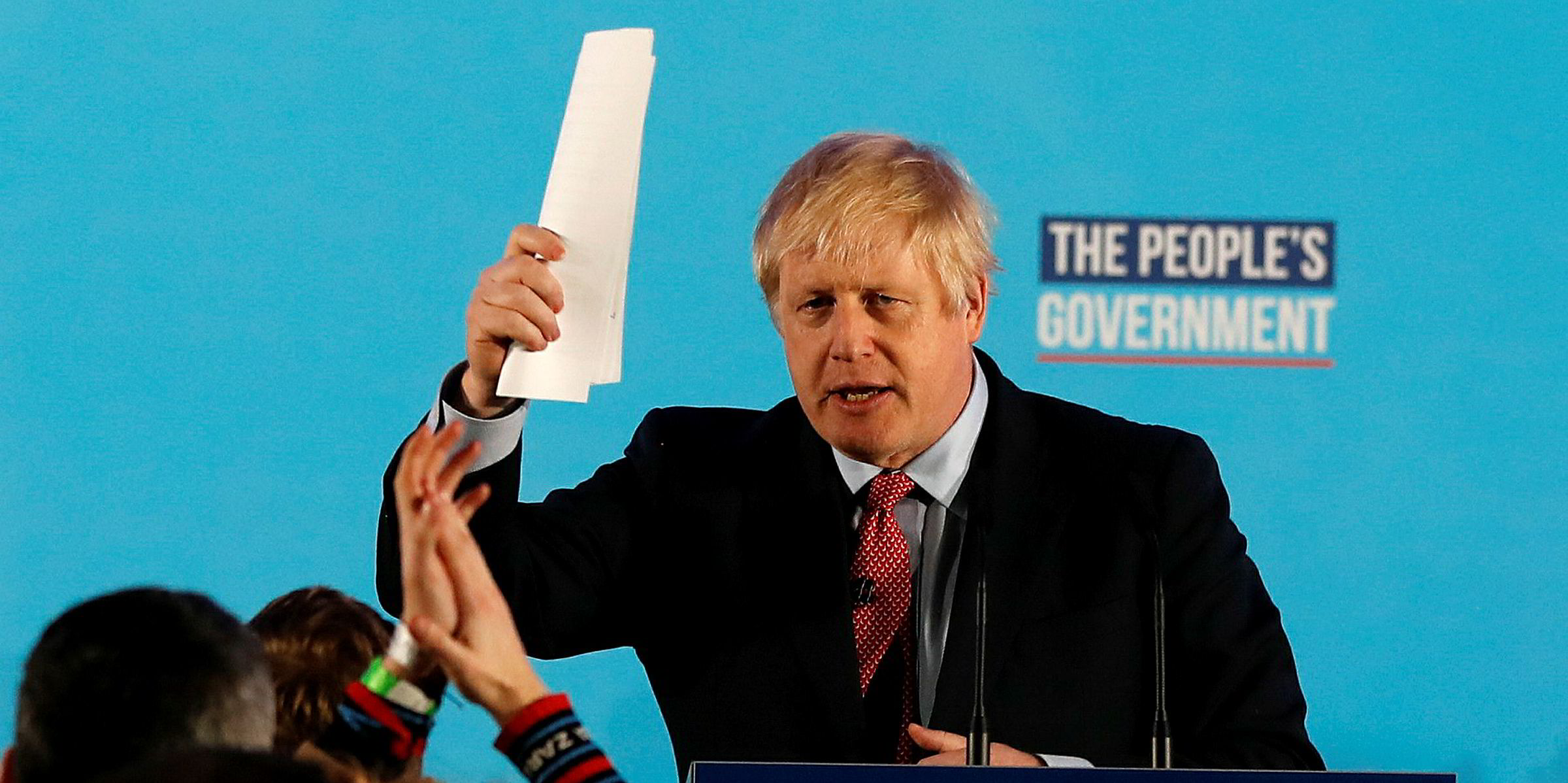For all of Great Britain’s magnificent seafaring tradition, modern governments of all stripes have struggled to take the maritime industry seriously.
Nice words have been spoken about the importance of shipping but concrete action has often been short on the ground.
There was nothing at all on maritime matters in the manifesto of the Conservative Party that has just romped to victory in the UK elections.
But there have been many policy announcements in recent months about the kind of UK shipping industry the Tories want.
Maybe Boris Johnson, the re-elected prime minister, will follow in the footsteps of his hero Winston Churchill and change the pattern of neglect.
The famous World War II leader was responsible earlier on in his career for moving the Royal Navy from coal-powered to oil-powered ships. Could Johnson encourage the next big leap — from oil to hydrogen or fuel cells?
Having just won a big majority in the House of Commons, the emboldened Johnson really has got transformational power in his hands.
The country may still be largely divided down the middle over the biggest issue of the day, Brexit, but the Tories rule.
Johnson can now proceed with the split with Europe that he and half the country so wanted.
He promised this week to leave Europe by the end of 2020 — trade deal or no trade deal. That is either very brave or entirely reckless, but Johnson is a gambling man.
Not much detail has been given about the kind of Britain he really wants to see after Brexit but we can be sure it will clearly have entrepreneurial capitalism at its heart.
Singapore-on-Thames
There has been general talk of an economy built around low taxation and low regulation: Singapore-on-Thames.
Certainly the prime minister has talked about creating at least six “free ports”, areas where goods can be manufactured, imported and exported without incurring tariffs.
That would create a jobs bonanza in depressed seaside towns, suck employment from elsewhere or just be used as a tax dodge, depending on your point of view.
Johnson has also promised to rule as a “one nation Conservative” — determined to bring the country together again after the economic and cultural schism around Brexit.
And he has promised to bring investment to the “left behind” towns, such as Ashfield, Bishop Auckland and Workington in the Midlands and North, previously heartlands of the opposition Labour Party.
The pound delivered one of its biggest ever rallies and share prices soared in London this week as investors rejoiced in what they saw as political certainty, plus the end of a radical Labour challenge to the business status quo.
Certainly, there have been plenty of good policy documents on shipping in the past 10 years under Conservative rule.
The UK Chamber of Shipping has made clear there needs to be state pump-priming for seafarer training schemes, research and development around decarbonisation, plus help for port infrastructure and coastal shipping
This includes the Maritime Growth Study of 2015, Maritime 2050, the National Shipbuilding Plan and the Clean Maritime Plan.
But the British-flag fleet has plunged from just under 18m gt in 2011 to less than 11m gt today — partly because of Brexit fears.
Can this be changed?
Many past strategy papers have included in small letters “in view of the administration’s ongoing spending review, the decision has been taken not to attribute specific timetables to the recommendations to governments”.
Spending plans
But on the election trail, the Conservatives promised that austerity was now over and said they would be spending billions of pounds on schools, hospitals and police.
The cash gates have clearly opened but the maritime world has not yet been told whether any of it will be coming its way.
Equally, there have been warnings from independent analysts that the public finances are in poor shape still.
Not everything needs money, of course, but the UK Chamber of Shipping has made clear there needs to be state pump-priming for seafarer training schemes, research and development around decarbonisation, plus help for port infrastructure and coastal shipping.
It is an amazing opportunity for “blue” action as Bob Sanguinetti, the UK Chamber of Shipping’s chief executive, made clear in TradeWinds last week.
So, it’s fair to ask Johnson, a former journalist who likes a lyrical turn of phrase himself, whether he will deliver for shipping.
Or is he — as they might say in the North of England where I come from — “all mouth and no trousers”.






